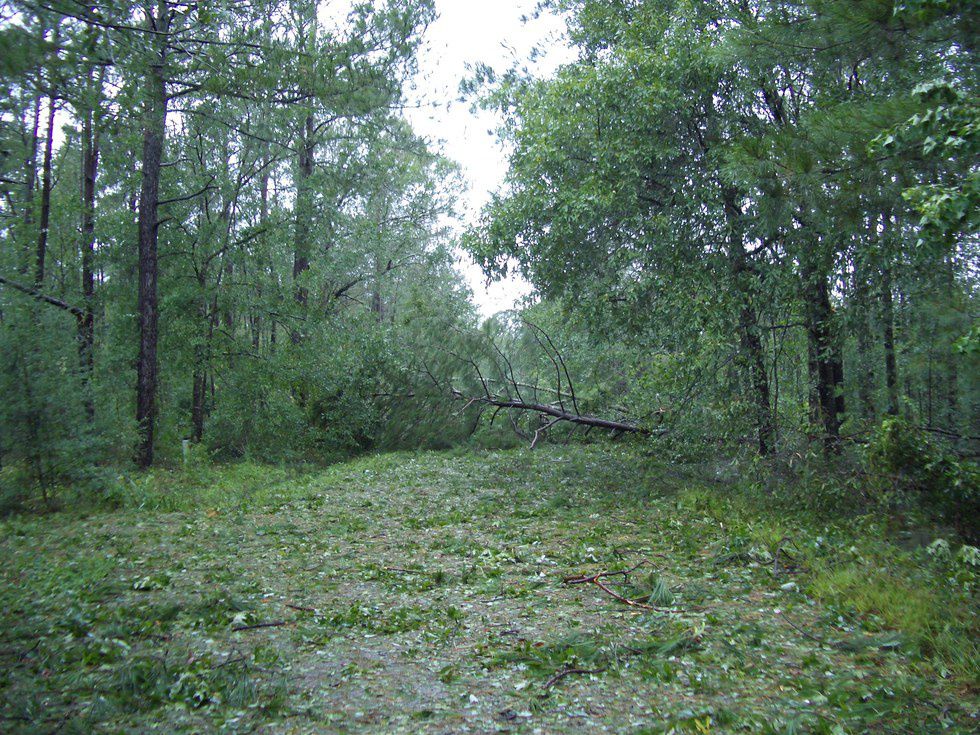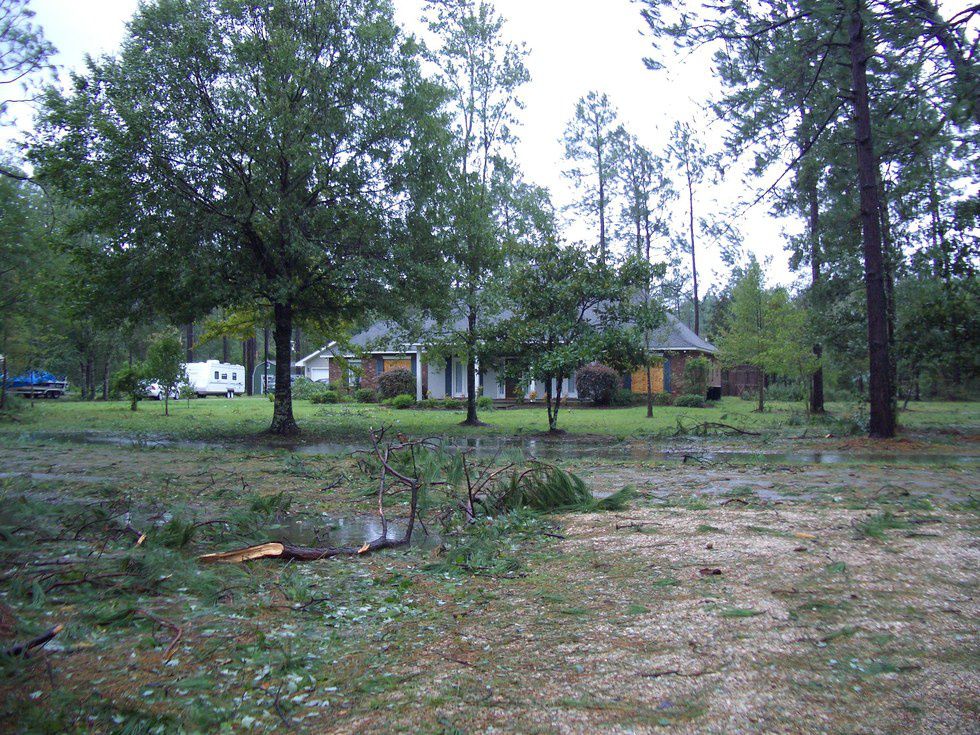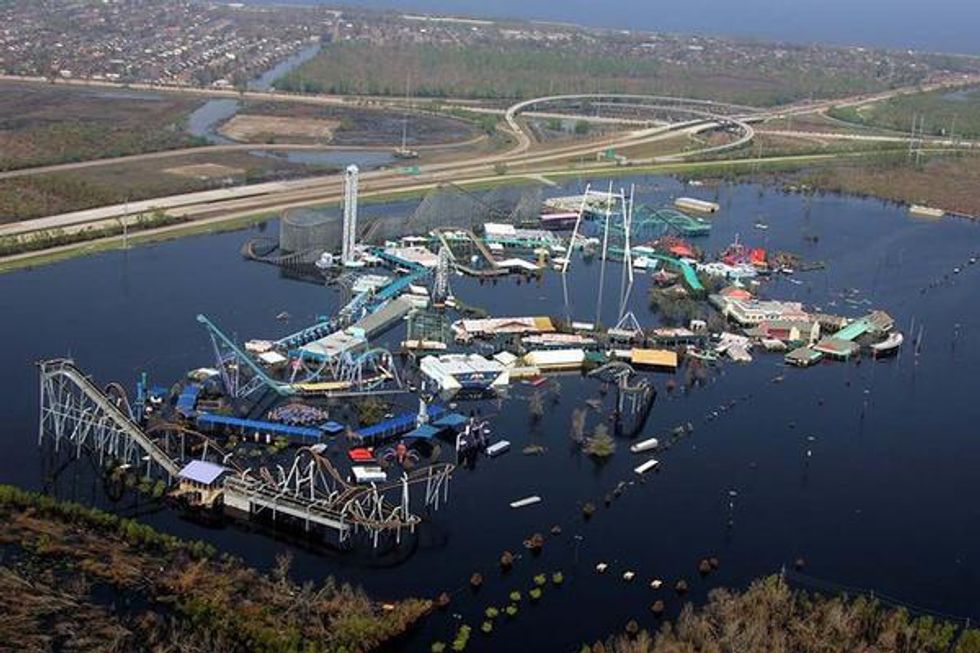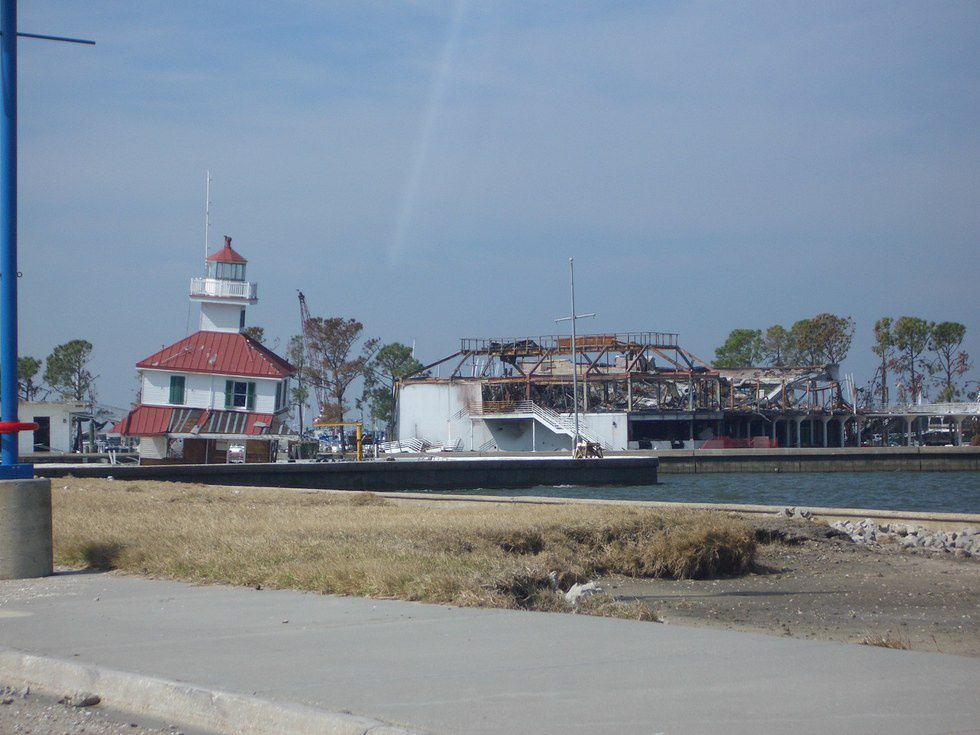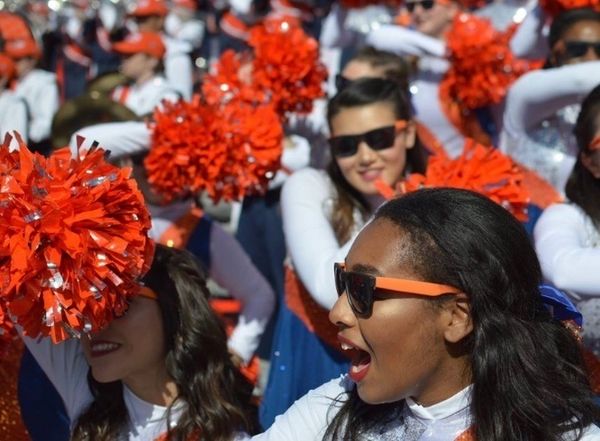On August 28, 2005, Mayor Ray Nagin called for the first-ever mandatory evacuation of New Orleans, Louisiana. The monstrous Hurricane Katrina was fast approaching the city from the Gulf of Mexico with wind speeds of 175 miles per hour. One day later, on August 29, thousands of lives were changed forever.
Ten years ago, I was in fifth grade and worried only about having to get out of bed and face middle school bullies the next day. I never thought I would have to come face-to-face with one of the biggest natural disasters in U.S. history.
Two days before Hurricane Katrina made landfall, we were celebrating my cousin's eleventh birthday party; her actual birthday wouldn't fall until August 29. Everything was normal. There was little talk of the hurricane brewing out in the gulf. All of the kids at the party, along with myself, were excitedly talking about school being cancelled on Monday and Tuesday.
The next day, the mandatory evacuation call hit the news and spread like wildfire. Emergency broadcasts were blaring on the local radio stations, and every local channel had emergency alerts filling the bottom of the screen. My parents would talk in whispers around my sister and I, debating on whether or not to evacuate. We lived on the North Shore; the damage couldn't be too bad, right?
My aunt's family decided to evacuate to Florida, packing up and leaving a day before the hurricane. My grandparents and uncle came down from Slidell to stay with us until the storm passed, and I still remember my dad spending hours outside in the heat boarding up as many windows of the house as he could.
The morning of the hurricane, I remember waking up early in the morning alone. I had slept on the floor of my parents' bedroom with my sister, but they had all gotten up earlier. The wind was picking up outside, and I laid in bed listening to the rain pounding against the window.
The house was dark when I walked out into the living room, the news the only source of light. Everyone was really quiet, sitting around the room with their eyes glued to the television. When the TV finally lost signal, we wouldn't learn what was really going on outside until August 31.
I don't remember much from that day, only able to recall a few snippets and images in my head. I remember not being allowed to leave the living room area without a parent by my side out of the fear of falling trees. I remember the sound of the thunder and falling trees shaking our house, and I was unable to tell the difference between the two. I remember sitting at a card table playing games with my grandparents, and the story my grandma told me about Hurricane Betsy. I remember my mom and grandpa standing outside to film the destruction, all of us in awe of the force nature possessed that day. After the storm had finally passed, I remember walking outside for the first time and trying to see how our neighbors down the street had made out but unable to get past the trees blocking the road.
We had no idea the extent of the destruction of the hurricane. All we knew was what we saw around our neighborhood. We had never had a storm this bad, and something in our guts told us the damage was much worse elsewhere.
On August 30, my parents decided it was time to leave. They didn't know how long the electricity would be out, the fuel on the generator was running low, and my grandma's oxygen tank wouldn't last much longer on its own.
We left my house at one in the afternoon, ready for a drive that typically took four hours. We drove for 12 hours, taking back roads off the interstate, listening to the news when we could get the station in, and avoiding road closures due to boats blocking the streets.
The news didn't have much information about what was really going on yet, and my parents didn't want to keep the reports on too long and scare my sister and I. Our evacuation was one of the longest drives of my life, not because of the hours it took, but because of the nervousness and fear that hung thickly around us. I remember very clearly, though, hearing the song "Wake Me Up When September Ends" when we first began receiving radio signal again. For the rest of my life, that song will always brought back memories of that day, that drive, and of the months that followed.
When we finally reached my aunt, uncle, and cousins in the Florida rental house, I remember my aunt hugging all of us tightly. We were all so relieved to be back together again.
It was that night when I saw my first footage of what was happening in my hometown backyard.
I will never be able to get the image out of my head of Six Flags New Orleans submerged underwater. It was the first raw footage I had ever seen of the destruction of Hurricane Katrina. From then, the reports of the damage just keep coming in.
I wouldn’t return home for three weeks due to the lack of electricity and damage on the North Shore. I wouldn’t return to the South Shore for another three months after. My uncle would never return to his home in Slidell.
Thousands of lives were lost and families displaced because of this massive storm. It has gone down in history as one of the most destructive hurricanes to hit the U.S., and the recovery from such a huge disaster would take years.
On September 26, 2006, the New Orleans Saints came home to the Superdome. With live performances by Green Day and U2 and Tom Benson taking the field to lead a Mardi Gras-styled second-line after the win, the first home game since Katrina was one of the loudest and most exciting returns in the history of the Superdome. For their triumphant homecoming, the Saints beat the Atlanta Falcons 23-3. They gave the city hope again, and only a few years later, the New Orleans Saints took home the Super Bowl XLIV trophy.
Since August 29, 2005, New Orleans and the rest of Louisiana has made great strides in rebuilding and improving the city. Although the storm was catastrophic, New Orleans has been hailed as one of the most resilient cities, and over the past ten years there have been many changes from then to now.
Looking back, Mitchell J. Landrieu has said, "In the planning efforts that came after the storm, the people of New Orleans began to enunciate a desire to build back better than before the storm in order to make New Orleans a stronger, more resilient city. The magnitude of the destruction—both to physical structures and major systems—provided an opportunity, out of necessity, to transform our city."
Hurricane Katrina rolled in quickly and she was gone in the blink of an eye. Her power left the United States reeling in the wake of her destruction, but one of the most incredible things I had ever witnessed was how the world was ready to help in every possible way, and it’s something I continue to witness to this day. With every horrible news story of natural or man-made disaster, there are always people who are willing to help, to stand by you and your city, and to pray for victims and for recovery.
On August 29, 2005, I had my first real experience with the power and destruction of nature, and I also began to fully understand the value of family, the brevity of time, the triviality of possessions, and the kindness of others.




